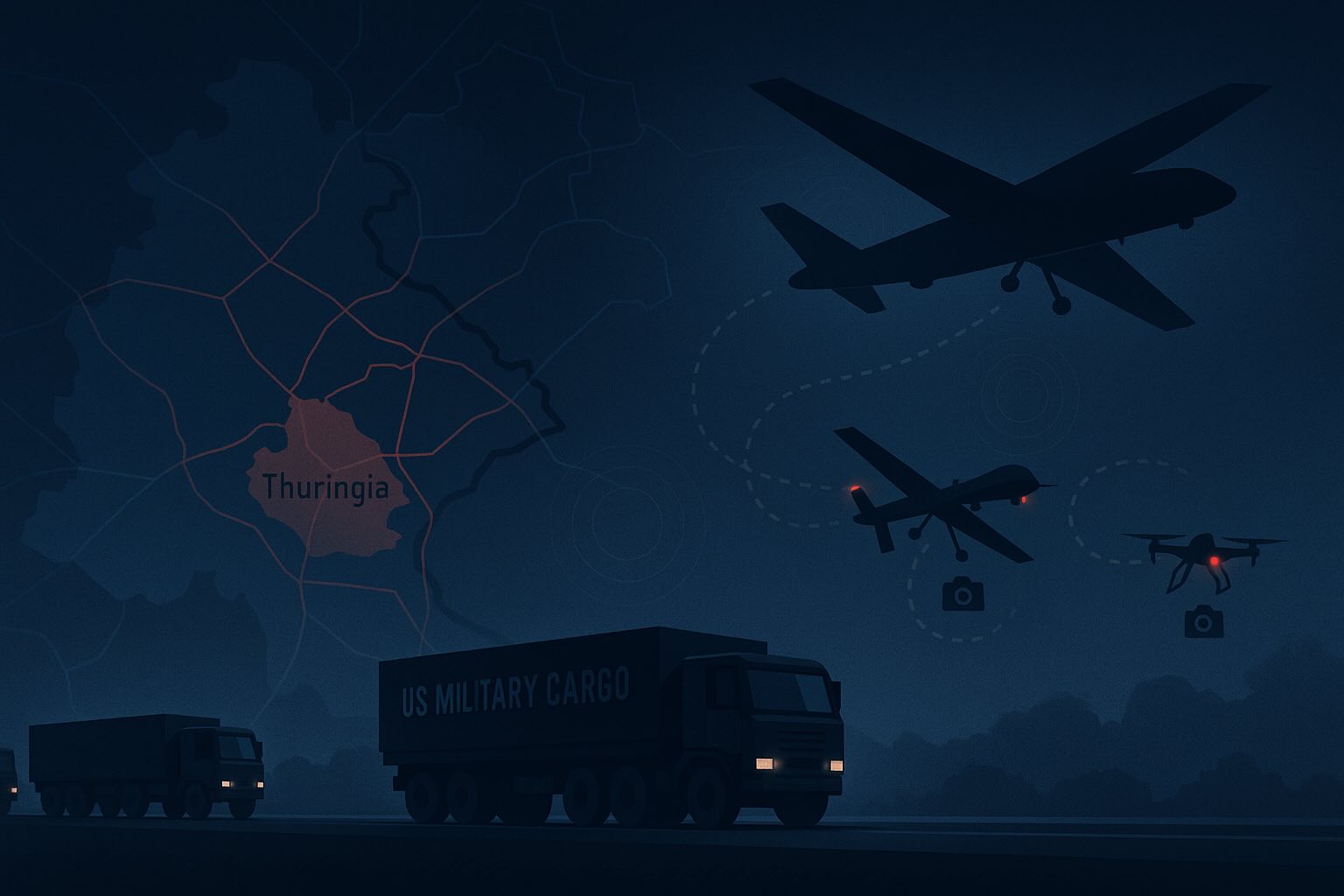


The activity, centred on the state of Thuringia, was described by U.S. and European officials as a source of growing concern, though the origin of the flights has not been conclusively established.
Officials cited in the reports said the drones are believed to be gathering information on transport patterns and timings, potentially to inform sabotage efforts or support Russian military planning in Ukraine. American officials have confirmed the flights’ occurrence but said they have not been able to trace their provenance; they assess that the aircraft are being operated either by Russian personnel or by individuals acting for Russian intelligence services.
The Kremlin rejected the allegations. Spokesman Dmitry Peskov said Moscow had not studied the article in detail but argued that if such flights had taken place German authorities would have noticed and “would hardly have kept quiet,” characterising the report as likely “another newspaper fake.”
The claims surface amid a sustained pattern of suspicious drone activity over German military facilities and critical infrastructure. An internal report attributed to the Federal Criminal Police Office (BKA) and cited by German media recorded 270 incidents involving 536 drone flights over sensitive sites between January and March 2025. A large share of the incidents reportedly occurred in the evening and at night, and many were near military locations.
German security services have also investigated specific episodes in recent months. In February, six drones were reported over the Schwesing air base in Schleswig-Holstein, where Ukrainian personnel are trained on air-defence systems; German media said Russia was the main suspect, and authorities opened an espionage probe.
In May, a German Federal Police patrol vessel monitoring the Russian-flagged cargo ship Lauga in the North Sea reported a swarm of seven drones tracking both ships for almost three hours before disappearing. The drones’ origin was not determined. The incident occurred roughly 140 kilometres north of Borkum and was later described in German press accounts based on a confidential situation report.
Concerns over sabotage have run in parallel with law-enforcement action. On 14 May, prosecutors announced the arrests of three Ukrainian nationals in Germany and Switzerland on suspicion of acting for Russia in a plot involving explosive parcels. Investigators said the suspects had prepared “test parcels” fitted with GPS devices to scout logistics routes for future attacks. The case followed a series of parcel fires at European depots in 2024 and warnings about the risk of devices on cargo flights; authorities said last year that a cargo parcel catching fire had nearly caused an air incident.
German officials have been weighing additional measures to counter unmanned aerial threats. In early 2025, the federal government advanced legal changes to allow the armed forces to shoot down suspicious drones when necessary to protect key sites, subject to parliamentary approval. The push followed a rise in drone sightings around military and industrial facilities.
Media outlets in Germany reported in July that authorities had begun expanding counter-drone capabilities around sensitive locations, while separate industry announcements and parliamentary documents have pointed to broader efforts to improve detection and interception systems.
European infrastructure has faced a series of suspected hostile acts since Russia’s full-scale invasion of Ukraine. Finnish prosecutors this week brought a case over the December 2024 severing of multiple Baltic Sea cables; separate attributions in Norway linked an April 2025 dam incident to Russian-linked hackers. While the nature and perpetrators of such operations vary, they have prompted NATO members to increase surveillance and hardening of critical nodes.
Thursday’s reporting suggests that, despite tighter scrutiny of Russian intelligence networks in Europe, drone activity aimed at mapping Western logistics continues to test German and allied defences. Officials quoted in the coverage say the flights provide potential targeting intelligence for any renewed sabotage efforts, even as some services assess that the overall tempo of such operations has declined this year.